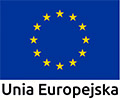Bronka Sukno – Prisoner T2
Women constituted a negligible percentage of prisoners employed in the Treblinka II Death Camp. From the beginning of the camp’s existence until the end of winter 1942/43 their number gradually increased. At that time, about 50 women were staying at the Treblinka II Death Camp. Young women between the ages of eighteen and thirty were chosen to work in the camp, although there were several younger girls and older women. Some of them worked in laundries, others were employed as seamstresses in a tailor’s workshop and in the kitchen.
On January 18, 1943, Bronka Sukno came to the Treblinka II Death Camp with the transport of Jews from the Warsaw Ghetto. She was selected with the consent of SS- Unterscharführer Franz Suchomel. After arriving at the camp, she was recognized by a friend of her sister who asked Suchomel to assign the girl to a group of women working in the camp. Initially, she worked in the laundry, then in the tailor’s workshop and in the kitchen for Ukrainian guards:
Upon arriving in Treblinka, women were separated from men and we were ordered to undress and give away footwear and clothing. […] I stood in the square. I was pushed by Franz Suchomel towards the barrack where the clothes were sorted. After about two hours, Suchomel took me to the laundry room, where crew clothes were washed and ironed. Along the way, he told me not to ask any questions and remember that I should not hear or see anything from what is here. The next day I came to a tailor’s workshop.
Bronka stayed in the death camp for seven months. In Treblinka she lost her parents and four siblings. As one of the few women, she survived the Treblinka II Extermination Camp – she escaped during the prisoners’ rebellion on August 2, 1943. After the war, she settled near Tel Aviv in Israel. She testified in the trial against the crew of the Treblinka II Extermination Camp that was pendingin Düsseldorf in 1964–1965.
Michael Bryant, Eyewitness to Genocide The Operation Reinhard Death Camp; Yitzhak Arad, The Operation Reinhard Death Camps, Revised and Expanded Edition: Belzec, Sobibór, Treblinka (quote from page 115); Michał Maranda, Nazistowskie obozy zagłady. Opis i próba analizy zjawiska; Edward Kopówka, Nigdy więcej.
Translation: B.K.





